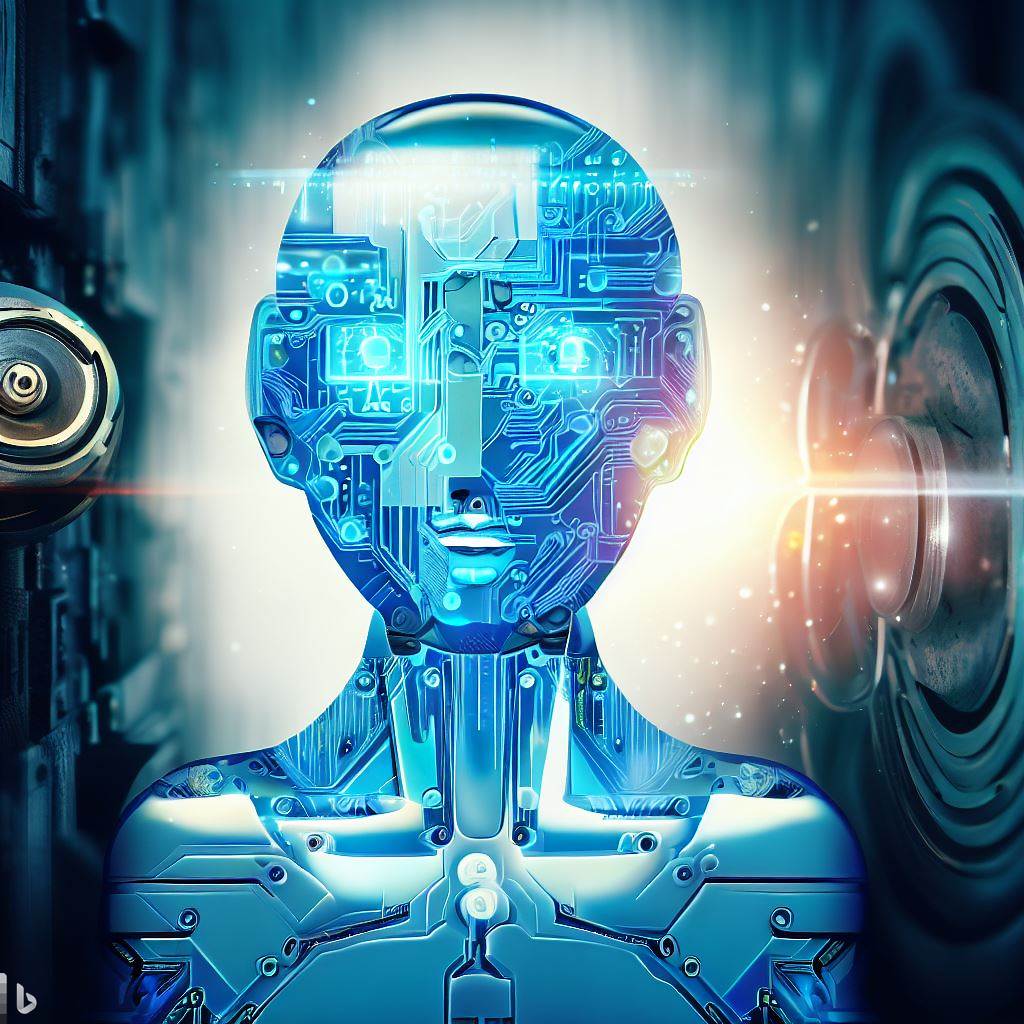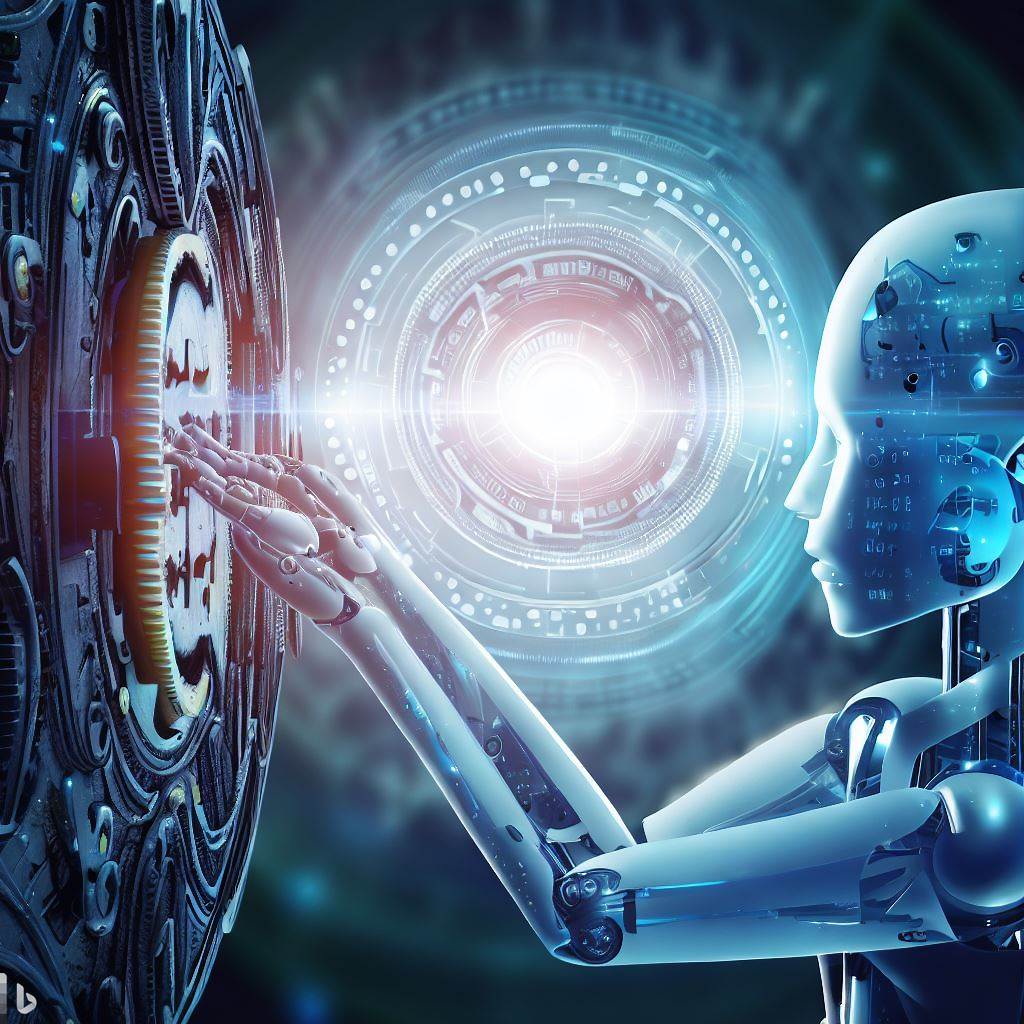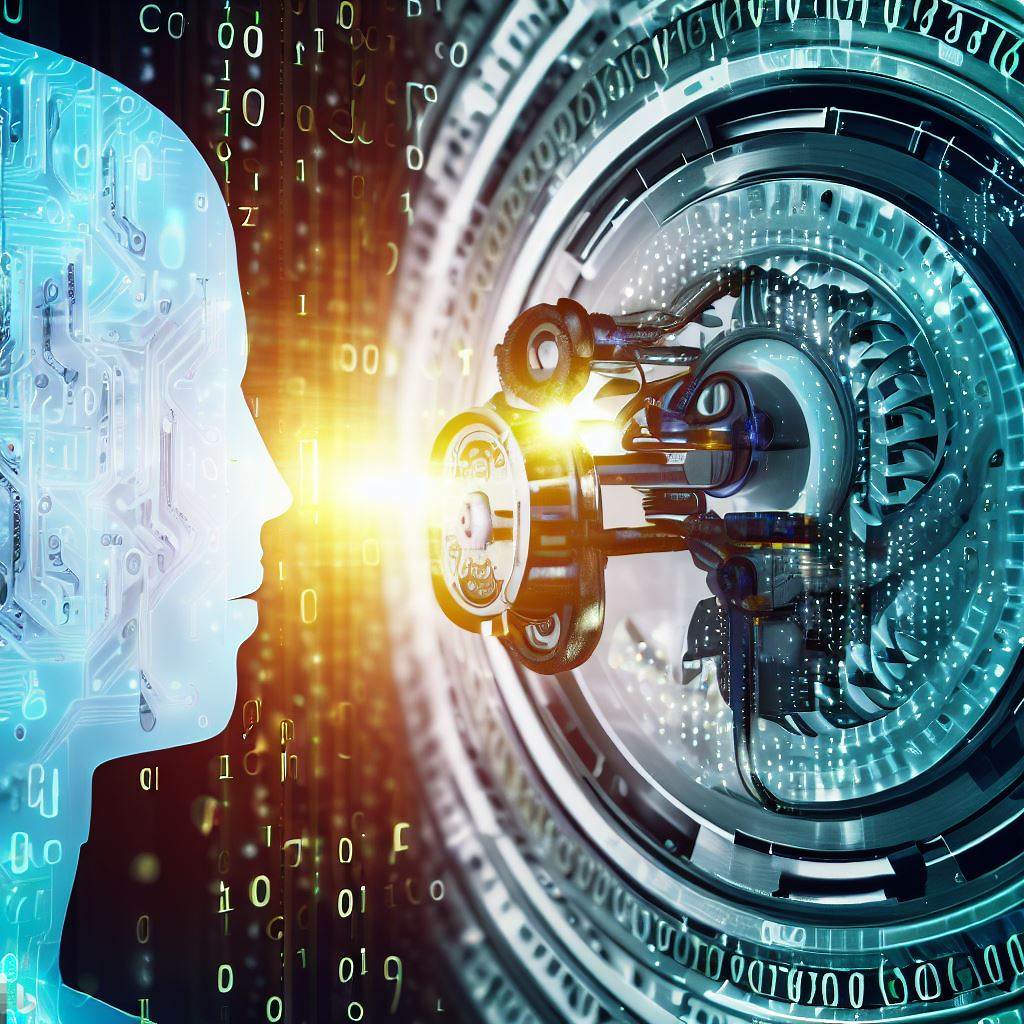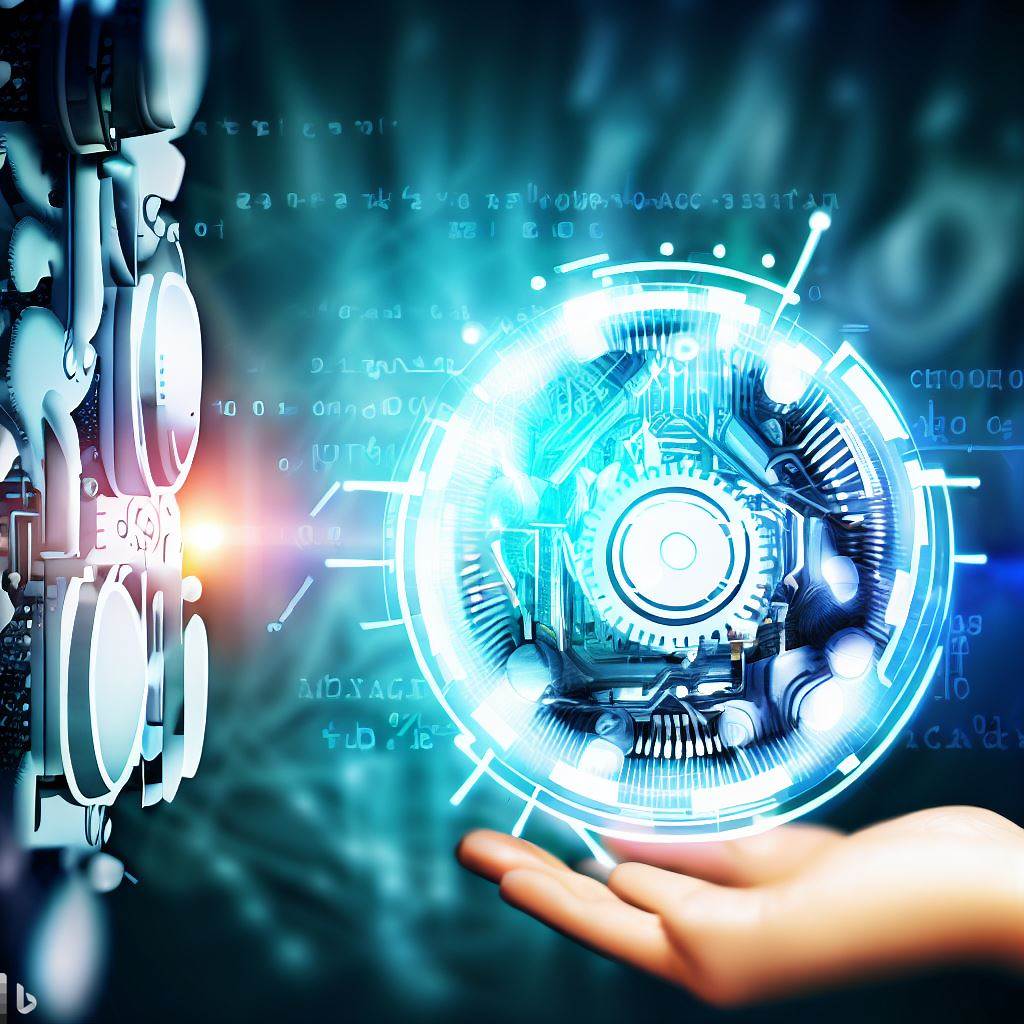Artificial Intelligence (AI): Unlocking the Potential of Intelligent Machines in 2023
Artificial Intelligence (AI) has become a transformative force in today’s digital age. With its ability to mimic human intelligence, AI is revolutionizing various industries and shaping the future of technology. In this article, we will explore the fascinating world of artificial intelligence, its applications, challenges, and the immense potential it holds for our society.
Table of Contents
- Introduction to Artificial Intelligence
- Types of Artificial Intelligence
- Narrow AI
- General AI
- Superintelligent AI
- How Artificial Intelligence Works
- Applications of Artificial Intelligence
- Healthcare
- Finance
- Manufacturing
- Transportation
- Customer Service
- Education
- Benefits and Advancements in Artificial Intelligence
- Ethical Considerations in AI Development
- Challenges and Limitations of Artificial Intelligence
- The Future of Artificial Intelligence
- Conclusion
- FAQs

1. Introduction to Artificial Intelligence
Artificial Intelligence (AI) refers to the development of computer systems capable of performing tasks that typically require human intelligence. These systems can analyze large amounts of data, recognize patterns, and make decisions or predictions. AI encompasses a broad range of technologies, including machine learning, natural language processing, computer vision, and robotics.
2. Types of Artificial Intelligence
Narrow AI
Narrow AI, also known as weak AI, is designed to perform specific tasks with a high level of proficiency. Examples include voice assistants like Siri and Alexa, recommendation systems, and autonomous vehicles. Narrow AI operates within a limited domain and lacks the ability to generalize beyond its predefined tasks.
General AI
General AI, also referred to as strong AI, aims to possess human-level intelligence across a wide range of tasks. This level of AI remains theoretical and is yet to be achieved. General AI would be capable of understanding, learning, and applying knowledge in various contexts, similar to how humans do.
Superintelligent AI
Superintelligent AI surpasses human intelligence in virtually every aspect. This level of AI represents a hypothetical scenario where machines exhibit cognitive abilities far superior to humans. Superintelligent AI is a subject of intense debate and speculation among scientists and researchers.
3. How Artificial Intelligence Works
Artificial Intelligence (AI) systems learn from data through a process called machine learning. They are trained using algorithms that analyze patterns, derive insights, and make predictions. These algorithms improve over time as they process more data, enabling AI systems to make increasingly accurate decisions.
4. Applications of Artificial Intelligence
Healthcare
AI is revolutionizing healthcare by enabling early disease detection, personalized treatments, and efficient medical imaging analysis. Machine learning algorithms can identify patterns in medical data, assisting doctors in diagnosing diseases and suggesting appropriate treatment plans.
Finance
The finance industry benefits from AI through algorithmic trading, fraud detection, and risk assessment. AI-powered chatbots provide personalized financial advice to customers, while predictive analytics helps financial institutions make informed investment decisions.
Manufacturing
AI is transforming manufacturing processes by enhancing automation, quality control, and predictive maintenance. Robots equipped with AI capabilities can perform complex tasks with precision, increasing productivity and reducing human errors.
Transportation
Autonomous vehicles powered by AI are on the horizon, promising safer and more efficient transportation. AI algorithms enable self-driving cars to analyze real-time data, navigate routes, and make split-second decisions, reducing the risk of accidents.
Customer Service
AI chatbots and virtual assistants are becoming increasingly prevalent in customer service. These intelligent systems can understand and respond tocustomer inquiries, providing quick and accurate support. They can handle repetitive tasks, freeing up human agents to focus on more complex customer needs.
Education
AI is revolutionizing the education sector by personalizing learning experiences. Adaptive learning platforms use AI algorithms to assess students’ strengths and weaknesses, tailoring educational content to individual needs. AI-powered tutors provide personalized guidance and feedback, enhancing the learning process.
5. Benefits and Advancements in Artificial Intelligence
Artificial Intelligence (AI) brings numerous benefits and continues to advance rapidly. Some key advancements include:
- Enhanced efficiency and productivity: AI automates repetitive tasks, streamlining processes and reducing human errors.
- Improved decision-making: AI systems analyze vast amounts of data and provide insights to support better decision-making.
- Enhanced customer experiences: AI-powered chatbots and virtual assistants offer 24/7 support, delivering prompt and personalized responses.
- Increased safety: AI technologies can monitor and predict potential risks, improving safety in various domains.
- New opportunities: AI opens up new opportunities for innovation and business growth, creating new jobs and industries.
6. Ethical Considerations in AI Development
As AI becomes more prevalent, ethical considerations play a crucial role in its development. Some key considerations include:
- Bias and fairness: AI algorithms can reflect the biases present in the data used to train them. Ensuring fairness and eliminating bias is crucial to prevent discrimination.
- Privacy and security: AI systems often process sensitive user data, requiring robust security measures to protect privacy and prevent unauthorized access.
- Accountability and transparency: It is essential to understand how AI systems make decisions and be able to hold them accountable for their actions.
- Ethical decision-making: AI should be developed with ethical frameworks in place, ensuring that it aligns with human values and societal norms.
7. Challenges and Limitations of Artificial Intelligence
While AI holds immense potential, it also faces challenges and limitations:
- Data limitations: AI systems heavily rely on high-quality and diverse data for effective training and decision-making. Limited or biased data can lead to inaccurate results.
- Explainability: Some AI algorithms, such as deep neural networks, are highly complex and challenging to interpret. This lack of explainability raises concerns about transparency and trustworthiness.
- Ethical dilemmas: AI can present ethical dilemmas, such as autonomous vehicles having to make split-second decisions that may involve trade-offs between different outcomes.
- Job displacement: The automation enabled by AI may lead to job displacement in certain industries, necessitating the reskilling and upskilling of the workforce.
8. The Future of Artificial Intelligence
The future of artificial intelligence (AI) is both exciting and uncertain. As technology advances, we can expect:
- Advancements in deep learning: Deep learning, a subset of machine learning, is likely to see further advancements, enabling AI systems to extract more complex insights from data.
- Increased integration: AI will become more integrated into our daily lives, from smart homes to healthcare systems, improving convenience and efficiency.
- Continued ethical considerations: As AI becomes more prevalent, ongoing discussions and frameworks for ethical AI development and deployment will continue to evolve.
- Collaboration with humans: AI will augment human capabilities rather than replace them. Collaboration between humans and AI will be essential for achieving optimal results.

9. Conclusion
Artificial Intelligence has the potential to revolutionize industries and transform society. Its applications span healthcare, finance, manufacturing, transportation, customer service, and education. As we embrace the benefits of AI, we must also address ethical considerations and overcome challenges to ensure responsible and inclusive development.
FAQs
- What is Artificial Intelligence? Artificial Intelligence (AI) refers to computer systems that can perform tasks requiring human intelligence, such as learning, problem-solving, and decision-making.
- What are the types of Artificial Intelligence? There are three types of Artificial Intelligence (AI): Narrow AI (designed for specific tasks), General AI (possessing human-level intelligence), and Superintelligent AI (surpassing human intelligence).
- How does Artificial Intelligence work? Artificial Intelligence (AI) systems learn from data through machine learning algorithms. These algorithms analyze patterns, derive insights, and make predictions, improving their performance over time.
- What are the applications of Artificial Intelligence? Artificial Intelligence (AI)is applied in various fields, including healthcare, finance, manufacturing, transportation, customer service, and education.
- What are the challenges of Artificial Intelligence? Challenges of Artificial Intelligence (AI) include data limitations, lack of explainability, ethical dilemmas, and potential job displacement.
- What does the future hold for Artificial Intelligence? The future of Artificial Intelligence (AI)includes advancements in deep learning, increased integration into daily life, ongoing ethical considerations, and collaboration between humans and AI.
- Can Artificial Intelligence replace human jobs? While AI may automate certain tasks and roles, it is unlikely to completely replace human jobs. Instead, AI is more likely to augment human capabilities, leading to new job roles and opportunities.
- What are the ethical concerns regarding Artificial Intelligence? Ethical concerns in AI development include issues of bias, privacy, security, accountability, and transparency. Ensuring that AI systems are fair, trustworthy, and aligned with human values is crucial.
- Are there any risks associated with Artificial Intelligence? There are risks associated with AI, such as potential misuse, unintended consequences, and the possibility of AI systems making biased or erroneous decisions. It is essential to address these risks through responsible development and regulation.
- How can businesses leverage Artificial Intelligence? Businesses can leverage AI to gain insights from data, automate processes, improve customer experiences, enhance decision-making, and drive innovation. AI can help businesses become more efficient, competitive, and customer-centric.
- What are the key considerations for AI adoption in organizations? Organizations should consider factors such as data quality and availability, infrastructure requirements, skill sets needed for AI implementation, ethical implications, and the potential impact on employees and customers.
- Can Artificial Intelligence replace human jobs? While AI may automate certain tasks and roles, it is unlikely to completely replace human jobs. Instead, AI is more likely to augment human capabilities, leading to new job roles and opportunities.
- What are the ethical concerns regarding Artificial Intelligence? Ethical concerns in AI development include issues of bias, privacy, security, accountability, and transparency. Ensuring that AI systems are fair, trustworthy, and aligned with human values is crucial.
- Are there any risks associated with Artificial Intelligence? There are risks associated with AI, such as potential misuse, unintended consequences, and the possibility of AI systems making biased or erroneous decisions. It is essential to address these risks through responsible development and regulation.
- How can businesses leverage Artificial Intelligence? Businesses can leverage AI to gain insights from data, automate processes, improve customer experiences, enhance decision-making, and drive innovation. AI can help businesses become more efficient, competitive, and customer-centric.
- What are the key considerations for AI adoption in organizations? Organizations should consider factors such as data quality and availability, infrastructure requirements, skill sets needed for AI implementation, ethical implications, and the potential impact on employees and customers.
- Is Artificial Intelligence dangerous or beneficial? Artificial Intelligence (AI) itself is neither inherently dangerous nor beneficial. It depends on how it is developed, deployed, and used. When implemented responsibly and with proper ethical considerations, AI can bring significant benefits to society. However, it is crucial to address potential risks and ensure that AI is developed with human well-being and societal values in mind.
In conclusion, Artificial Intelligence (AI) has the potential to revolutionize the way we live and work. By leveraging its capabilities responsibly, we can unlock the immense benefits it offers and shape a future where intelligent machines assist and collaborate with humans for a better world.
Raspberry Pi 4 Turns Truck into Huge Dot Matrix Printer
Related Videos:













